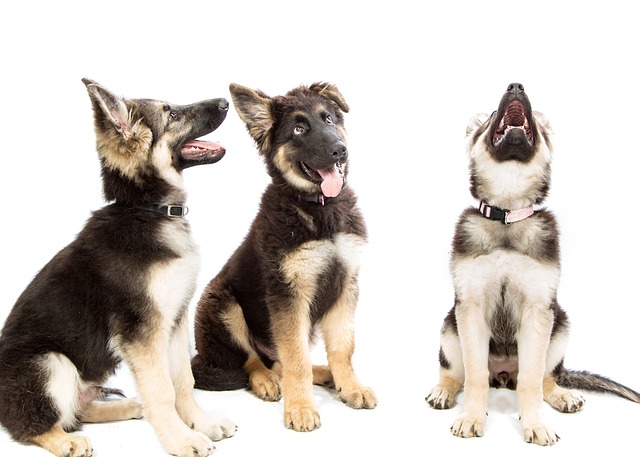
How can I tell if my dog's heatstroke is serious
Let’s be real: It’s a sticky August morning in Los Angeles, and you took your 2-year-old Golden Retriever, Max, for a walk a little later than usual
Nighttime can be a quiet window into your senior dog’s well-being—when the house settles, their true habits often surface. Unlike younger pups, older dogs tend to have more predictable routines, so shifts in how they act after dark can tell you a lot about their health. Maybe they’ve started pacing when they used to curl up soundly, or perhaps they’re sleeping more deeply than usual. These small changes are worth noticing.
A healthy senior dog will usually maintain a fairly consistent sleep pattern. They might shift positions a little more than they did in their prime, but they shouldn’t be up every hour whimpering or struggling to get comfortable. If your dog starts waking frequently, especially with signs of restlessness like digging at their bed or panting when it’s cool, it could signal discomfort—maybe joint pain or even a bladder issue. Keep an eye on whether they can still get up on their own to move around; stiffness that lingers into the night might need a vet’s attention.
Appetite doesn’t disappear at sunset, and a healthy older dog should still show interest in their evening meal or a small bedtime treat. If they turn away from food they used to love, especially for more than one night, it’s a red flag. Similarly, watch their water intake. Drinking significantly more after dark can hint at issues like kidney trouble or dehydration, which are important to address quickly—staying on top of these changes aligns with keeping them in good shape, as any responsible pet owner knows.
 Potty habits are another clue. Senior dogs might need to go out more, but a healthy one should still have control. Accidents at night, especially sudden ones, aren’t just messy—they could mean urinary tract issues or even cognitive changes. Notice if they’re straining or taking longer to go; these details help your vet pinpoint problems early. It’s part of making sure they’re comfortable, and keeping up with such care is part of looking after them the right way.
Potty habits are another clue. Senior dogs might need to go out more, but a healthy one should still have control. Accidents at night, especially sudden ones, aren’t just messy—they could mean urinary tract issues or even cognitive changes. Notice if they’re straining or taking longer to go; these details help your vet pinpoint problems early. It’s part of making sure they’re comfortable, and keeping up with such care is part of looking after them the right way.
Breathing should be steady when they’re resting. Labored breathing, wheezing, or loud snoring that’s new can indicate heart or respiratory issues. Feel their body gently while they sleep—their chest should rise and fall evenly. A warm, dry nose isn’t always the best indicator, but their ears and paws should feel comfortably warm, not overly hot or cold. These little checks can make a big difference.
Changes in behavior often speak louder than physical signs. If your normally calm senior dog starts hiding, clinging, or acting anxious at night, it might be more than just restlessness. Pain, vision loss, or even confusion can make them uneasy after dark. Spending a few extra minutes with them each night—talking softly, checking in—can help you pick up on these cues. And when something feels off, reaching out to your vet promptly is always the best move; it’s how we keep our older dogs happy and healthy for as long as possible.
Watching your senior dog at night isn’t just about spotting problems—it’s about cherishing these quieter moments. Their habits, the way they nudge your hand for a pat before settling, the soft sighs as they drift off—these are all part of their rhythm. By tuning into those small shifts, you’ll know exactly when they’re thriving, and when they might need a little extra care. That’s the heart of keeping your senior dog healthy, night after night.

Let’s be real: It’s a sticky August morning in Los Angeles, and you took your 2-year-old Golden Retriever, Max, for a walk a little later than usual

You're enjoying a summer afternoon at the park when you notice your dog has stopped panting and appears disoriented - their gums are bright red

Let’s paint the picture: You’re in your Denver apartment, watching your 4-year-old Boston Terrier, Ruby, plop down mid-play session with her favorite toy

Many dog owners notice their pets nails seem shorter after regular walks,but how much does this daily activity actually help?The answer depends on where you walk—concrete sidewalks or asphalt streets gently file nails as a dog's paws hit the ground

Most dog owners notice their pup scooting across the carpet at some point, but few connect it to impacted anal glands. These small sacs near a dog’s rectum secrete a scent for marking territory

Most vets agree that regular dog teeth cleaning is key to avoiding painful dental issues later. For healthy adult dogs, a professional cleaning at the vet’s office every 12 to 18 months usually works well.